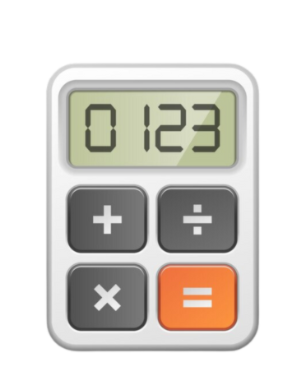What Is a Brokerage Account?
A brokerage account is an investment account that allows individuals to buy, sell, and hold various financial assets, such as stocks, bonds, mutual funds, exchange-traded funds (ETFs), and more. It acts as a gateway to the financial markets, enabling investors to grow their wealth and achieve their financial goals. Brokerage firms offer brokerage accounts, providing tools, platforms, and resources to help manage investments. Depending on the account type, investors can make trades themselves or seek guidance from financial advisors. Some accounts are taxable, while others, like retirement accounts, may have tax advantages. In this article, we’ll explore what is a brokerage account, the key benefits of having a brokerage account, and how it can help you achieve long-term financial success.
Table of Contents
Types of Brokerage Account
When exploring what is a brokerage account, it’s important to understand that there are various types available, each designed to cater to different investment needs. When it comes to investing in India, choosing the right type of brokerage account is essential. Here are the common types of brokerage accounts available in India:
1. Full-Service Brokerage Account
- Offers a wide range of services, including research, portfolio management, and advisory.
- Ideal for investors seeking expert guidance.
- Examples: ICICI Direct, HDFC Securities, Kotak Securities.
2. Discount Brokerage Account
- Focuses on low-cost trading with minimal services.
- Best for self-directed investors comfortable managing their own portfolios.
- Examples: Zerodha, Upstox, Groww.
3. Cash Account
- Requires investors to pay the full amount upfront for securities purchases.
- Does not allow borrowing or leverage, making it low-risk.
4. Margin Account
- Allows investors to borrow funds to trade, increasing purchasing power.
- Involves higher risk due to interest charges and margin calls.
5. Demat Account
- Specifically used for holding securities in electronic form.
- Mandatory for trading in stocks and other market-linked instruments.
6. Custodial Account
- Opened by a parent or guardian for minors, allowing them to invest while under legal supervision.
7. Retirement Accounts (NPS, PPF)
- Accounts like the National Pension System (NPS) and Public Provident Fund (PPF) offer tax benefits.
- Designed for long-term savings and retirement planning.
Benefits of a Brokerage Account
When exploring the world of investing, understanding what is a brokerage account is crucial. Whether you’re a beginner or an experienced investor, a brokerage account helps you manage your investments efficiently.
Diverse Investment Options: Access to stocks, bonds, ETFs, mutual funds, and more, allowing a personalized portfolio.
Wealth Growth: Invest for long-term growth with compounding returns to meet goals like retirement.
Liquidity & Flexibility: Buy, sell, and withdraw funds anytime without restrictions.
Customizable Strategies: Tailor investments to match your financial objectives with available tools and research.
Tax Advantages: Minimize taxes through strategies like tax-efficient funds and long-term holdings.
Get Additional Financial Benefits
Capital Gains: Earnings from the sale of investments held for over a year can be taxed at a lower rate, boosting your returns.
Dividend Income: Regular payouts from stocks or funds can provide passive income and reinvestment opportunities.
Tax-Efficient Investment Options: Brokerage accounts allow you to choose tax-efficient funds or strategies to minimize tax liabilities.
Diversification: Access to a wide range of investment options can help reduce risk and increase the potential for higher returns.
Flexibility with Withdrawals: You can withdraw funds whenever needed, providing liquidity for emergencies or new opportunities.
Understanding what is a brokerage account helps you make the most of these benefits.
Which Type of Charges are Applied to Your Brokerage Account?

If you’re new to investing or an experienced trader, knowing “what is a brokerage account” and its associated costs is a way to manage your investments effectively. Choosing the right brokerage or investment account can be challenging, especially with many options available in India. It’s important to consider a low-cost Demat account to avoid hidden fees.
Common brokerage charges include:
- Annual maintenance fees
- Fund transfer charges
- Account opening fees
- Brokerage charges
- Research and service fees
Brokerage costs are often calculated through stamp duty, transaction charges, GST, and securities transaction tax. Be sure to thoroughly review all fees and account features before making your choice to maximize value on your investments.
Conclusion
In conclusion, understanding what is a brokerage account is essential for anyone looking to invest in the stock market or other financial assets. Choosing the right brokerage depends on your portfolio size, investment knowledge, and goals. Low-cost online Demat accounts often offer features like charts, stock tracking, and targeted recommendations, helping new investors make informed decisions. Whether you choose a full-service or discount broker, security is always ensured. Compare brokerage charges and services to find the best option for your financial objectives.
FAQ
What is a brokerage account?
A brokerage account is an investment account that allows you to buy and sell financial assets like stocks, bonds, and mutual funds through a broker. It’s used to manage investments and make trades in the stock market. You can open one with a financial institution or brokerage firm, and it typically charges fees for services like buying and selling investments.
Is it mandatory to have a brokerage account to invest in shares and IPO?
Yes, it is mandatory to have a brokerage account to invest in shares and IPOs. It is needed to execute buy and sell orders for stocks or shares in the stock market. Brokers facilitate the transactions and ensure compliance with regulations. You can’t directly access the stock exchange or participate in IPOs without a brokerage account.
Can I have multiple brokerage accounts?
Yes, you can have multiple investment accounts. There is no limit to how many accounts you can open, and having more than one can give you access to different brokers, features, or investment options. However, managing multiple accounts might be more complex, so it’s important to stay organized. Understanding what is a brokerage account can help you make the most of each account you open.
Which is the best brokerage account for beginners?
For beginners, a discount brokerage account is often the best choice. These accounts offer low fees, easy-to-use platforms, and are ideal for those just starting to invest. Some popular options in India include:
- Zerodha – Known for its low fees and user-friendly platform.
- Upstox – Offers low brokerage and helpful educational tools.
- Groww – Easy-to-use with low charges and great for mutual funds too.
Do I need to make any minimum investment account opening a brokerage account?
There is no minimum balance or investment required to open a brokerage account. The only cost involved is a small fee for account opening. Discount brokers provide an affordable option, enabling you to open a brokerage account without the need to transfer funds. Understanding what is a brokerage account can help you make an informed decision when choosing a cost-effective solution for your investments.

This guidance is about what is a brokerage account, its types, and benefits.
